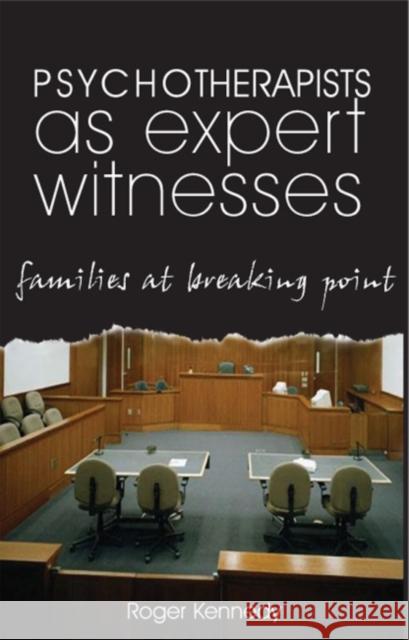Psychotherapists as Expert Witnesses: Families at the Breaking Point » książka
Psychotherapists as Expert Witnesses: Families at the Breaking Point
ISBN-13: 9781855753723 / Angielski / Miękka / 2005 / 180 str.
The book describes the author's extensive experience of working as an expert witness in family courts. Although he acts as a psychiatrist trying to see what is in the child's best interests in often very complex situations, his core identity as a psychoanalyst is fundamental to his approach. The work entails looking at the inner worlds of children and parents, as well as whole family functioning, including aspects of the wider professional network as well as the court processes. The book gives clinical examples of how the author uses his approach.
Being a psychoanalyst offers a particular clinical stance, where unconscious motives, impulses and emotions have to be faced. Tackling negative attitudes and behaviour, as well as promoting more positive aspects of functioning, based on a psychoanalytical approach, can help the more intractable families to change. A psychoanalytical approach can also help to inform decision-making in the courts. It can offer a space for calm thinking in an otherwise crisis-led field. But it means having to find a clear and communicable language for complex states of mind, a far from easy task, but one which may be worthwhile if psychoanalysis is to survive.
The book provides detailed guidance for assessing families for the courts, as well giving many detailed clinical examples to illustrate points made. Topics covered include guidance for experts, assessment of families, contact issues, fostering, adoption and rehabilitation issues.











